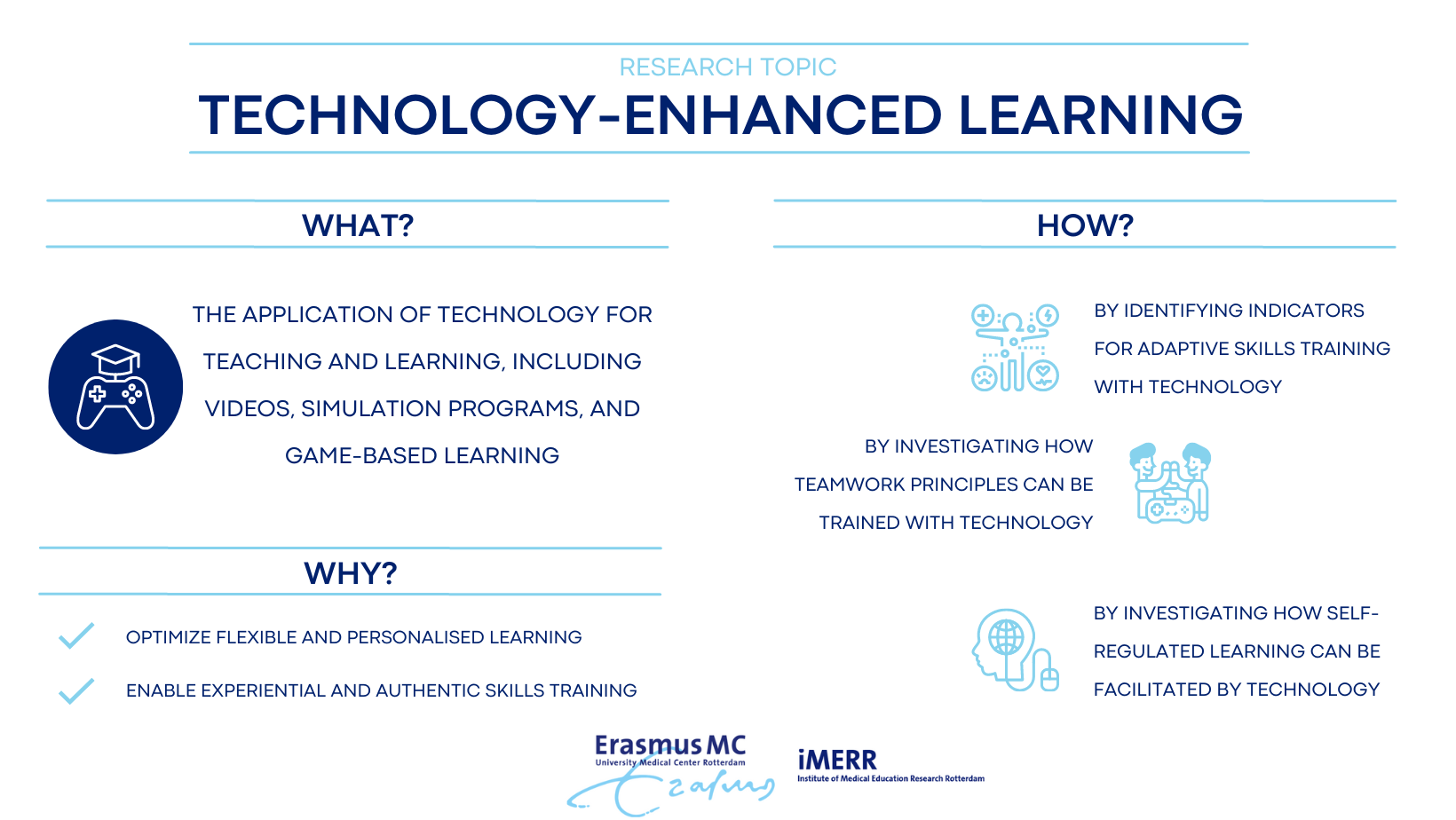
What is technology-enhanced learning?
The term Technology-enhanced learning (TEL) is used to describe the application of technology for teaching and learning. Technology has changed the way we can learn profoundly. E-modules, simulation programmes, interactive video and game-based learning are gaining traction in medical education. TEL has numerous advantages, among which flexibility in time and location, ease of updating content, scalability of learning material, immediate feedback, and online communication and collaboration. However, just because something is possible does not automatically make it a good idea. iMERR investigates how the potential of new technologies can be used for effective and attractive learning. More specifically, we study optimal instructional design choices for learning with video, simulation programmes and serious games. We take great effort to involve collaborators from related fields, including but not limited to educationalists, subject matter experts (for example physicians, nurses, pharmacists), teaching faculty, technological designers, and business.
What do we investigate?
Indicators for game-based learning
In the Indicators for Game-Based Learning project, we aim to identify indicators for effective learning in a simulation game for emergency medicine. In this game, students practice taking care of a critically ill patient. In experimental settings, we investigate whether behavioural in-game traces and physiological measurements are related to task performance and learning. If specific in-game behaviours or physiological disturbances are related to learning, we can use them as input to personalise adapt the learning path for students. This research takes place at Erasmus MC in collaboration with the Maastricht University Faculty of Health, Medicine, and Life Sciences and the Erasmus School of Social and Behavioral Sciences.
Optimal design in games for interprofessional teamwork
A second example is the Team Up!-game for interprofessional teamwork. This multi-player game was developed to provide master students the opportunity to practice crew resource management skills, such as communication, leadership, and team management. We investigate whether the game prompts students to apply these principles and how to best implement the game in a blended curriculum design.
Questions in instructional videos
A third example is our research on how questions in instructional videos are able to prompt self-regulated learning among students. Questions shown to students before, during, or after a video are likely to influence the way they interact with the content. By asking them questions that stimulate their self-regulation of learning, they may learn more effectively. If effective, this may lead to an elegant, scalable, and cost-effective design guideline for educational videos.
Meet the researchers
